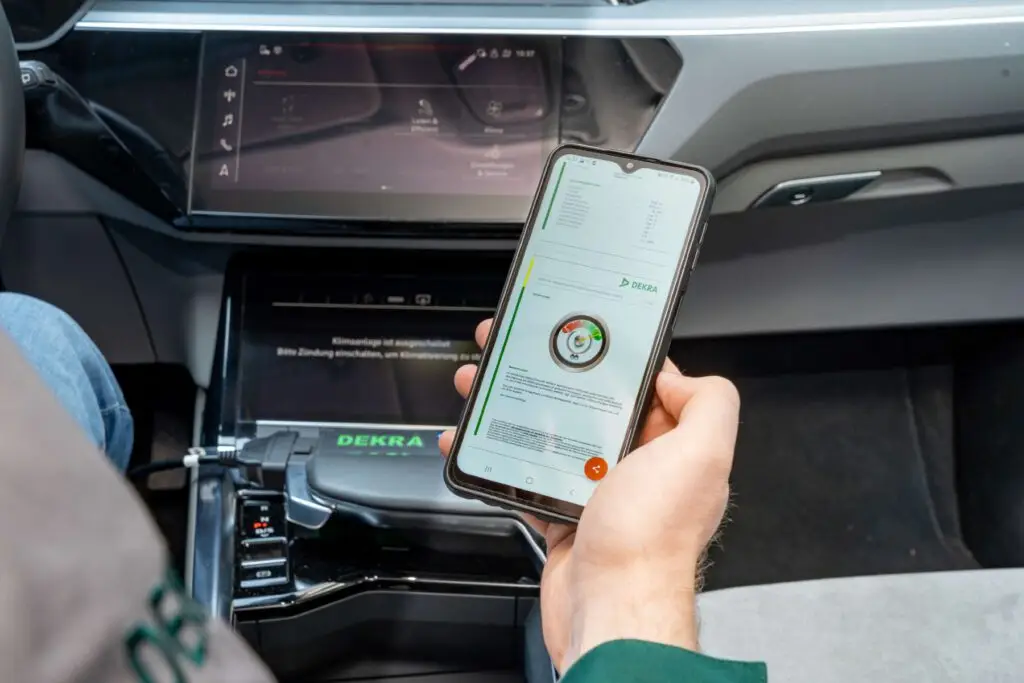Testing organization DEKRA has reported completing over 25,000 ‘state-of-health’ tests using its patented rapid battery test procedure for electric vehicles. Based on the collected data, DEKRA states that the batteries of electric cars are more durable than many consumers fear.
Introduced in 2022, DEKRA’s rapid battery test is available for approximately 130 different vehicle models and is offered in several European countries. The procedure takes about 15 minutes and includes a static test and a short acceleration drive of around 50 to 100 meters. This method provides a precise assessment of the battery’s condition.
The test is based on parameterizing individual vehicle models by charging and evaluating the battery under various conditions during complex test drives. “This creates a kind of coordinate structure that our system uses to analyze and evaluate the actual measured values during the test,” explained Christoph Nolte, Executive Vice President of DEKRA and Head of the Service Division Vehicles. “The result is a statement on the battery condition that no other method on the market can offer as quickly and precisely.”
With the data from the 25,000 completed tests, DEKRA experts can make general statements about battery aging. They have found that even with higher mileages, the vast majority of traction batteries remain in good condition. For example, six Jaguar I-Pace electric taxis in Munich, with mileages between nearly 180,000 and over 260,000 kilometers (about 112,000 to 161,000 miles), showed a ‘state of health’ between 95% and 97%.
“Our experience with electric vehicles has been extremely positive,” said Gregor Beiner, Managing Director of the Munich Taxi Center. “The batteries are very durable and retain their capacity for a very long time, especially with the safety buffers that manufacturers install. That’s why we have continued along this path. Today, we have around 70 vehicles in our fleet, a good third of which are electric vehicles from various brands. We aim to electrify our entire fleet by 2029.”
DEKRA notes that while most batteries perform well, there are exceptions. Factors such as driving style, climate, and charging behavior can influence how quickly a battery ages. Reliable information on battery condition is crucial for the used car market since the battery is the most expensive component of an electric vehicle.
All 74 DEKRA branches in Germany offer the rapid test by appointment. The organization is also working on an enhanced test procedure that eliminates the need for a driving segment. Instead, relevant measurements would be taken during a brief charging session. “Over the course of the coming year, we want to gradually introduce the enhanced test procedure for various vehicle models,” Nolte said. “Then the process will be even less complicated.”
This assessment aligns with other recent studies suggesting that electric vehicle batteries may last longer than previously assumed. Researchers at Stanford University have indicated that real-world driving and charging habits put less strain on batteries than laboratory tests suggest.
Source: DEKRA
















